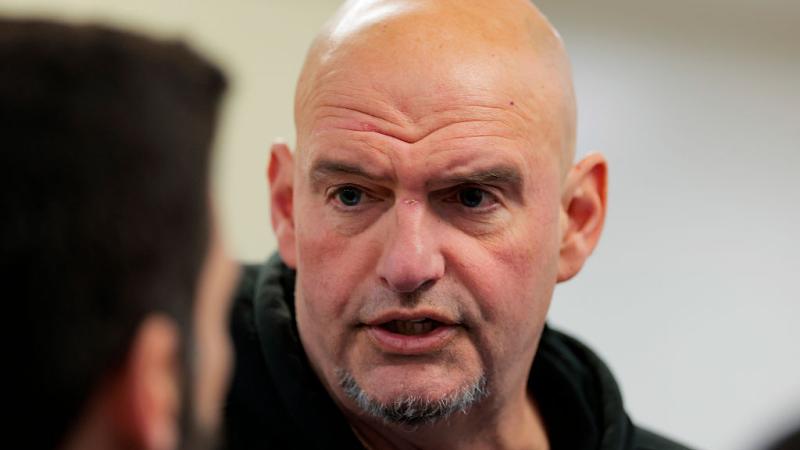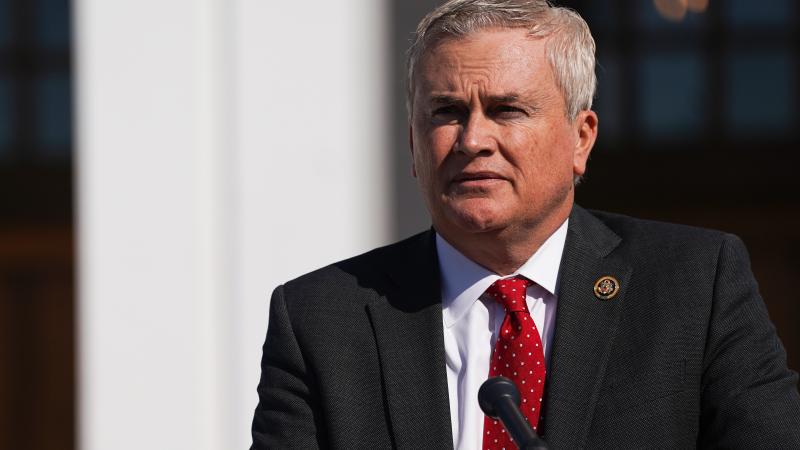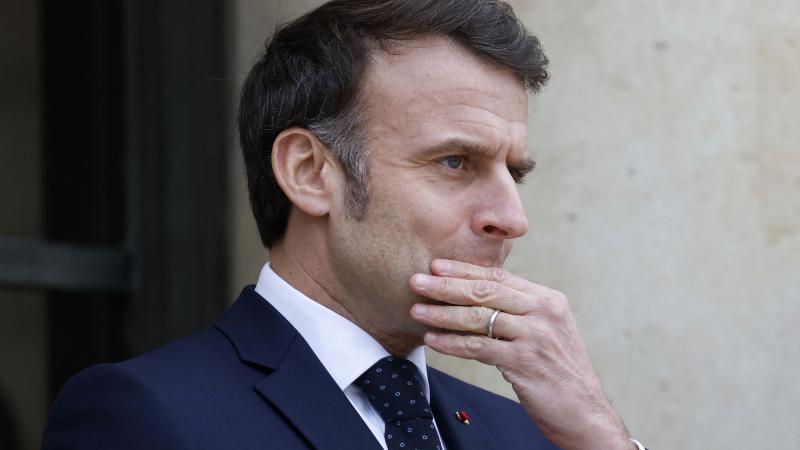Congressman: Dems will use 'reconciliation' to pass Biden's infrastructure bill if GOP opposes it
Democrat Congressman: Borrowing for Biden's entire infrastructure plan 'not the wisest thing to do'
Rep. Don Beyer, chairman of the Joint Economic Committee, said that he would "personally prefer" that President Biden's historic multi-trillion infrastructure plan be "fully paid for" but said he won't "insist on it" given how low interest rates are currently.
Biden is expected to formally unveil the proposal Wednesday during an event in Pittsburgh.
Beyer, a Virginia Democrat, also endorsed using budget reconciliation to pass the bill if Republicans oppose it.
"I would personally prefer that it was fully paid for but I'm not going to insist on it. If we can get it half paid for, that's a huge step forward," he said Tuesday during an interview after an event with Transportation Secretary Pete Buttigieg about American Rescue Plan funds going toward rail in Virginia.
"And there will be folks who make the modern monetary theory argument that with interest rates so low and very little inflationary pressure, you could literally borrow the whole thing. I think that'd be probably not the wisest thing to do," Beyer also said.
The deficit in fiscal 2020 was a record $3.13 trillion. The national debt is currently a record $28 trillion.
Beyer, a member of the House Ways and Means Committee, predicted that the Biden administration's infrastructure plan would likely be the largest in history at $3 to 4 trillion.
"It should be the largest in history, yeah, as Pete [Buttigieg] says we've hit this unique moment where the need is great, the will is there, the votes are there, and we can afford it, you know, it will it be another 10 years or another 100 years before we get this kind of window," he said.
Beyer was asked for his opinion of the vehicle miles traveled tax that the Biden administration was considering but walked away from as a funding mechanism for the infrastructure plan.
"VMT has the advantage of being fairer," he replied. "It has the disadvantage that a lot of the technical details are not yet worked out. And they're huge privacy concerns. No one really wants federal government to know where you are at any given time. But it makes much more sense than the gas tax, which is increasingly irrelevant, as Volvo and General Motors and others all move to electric cars.
"What makes more sense is carbon pricing. Whether it's a per gallon, per barrel tax, or something that's done at the point of origin. But there are other low hanging fruits so we could restore the corporate income tax to 27%, or lift the rate on the top 1% from 37 back to 39.6 or get rid of carried interest. There's a lot of ways we can do it. And the interest rates are so low, there's no reason not to use debt for some part of it."
Senate Majority Leader Chuck Schumer has reportedly asked the Senate parliamentarian to green-light the reconciliation process for Biden's upcoming infrastructure bill.
Beyer was also asked whether he would support Democrats using budget reconciliation to move the infrastructure package though Congress to avoid needing votes from Republicans. Democrats used budget reconciliation for Biden's $1.9 trillion American Rescue Plan, the second largest stimulus package in history.
"I think all of us, including the president and Secretary Buttigieg would prefer to have it be bipartisan, you know, at least 10 Republican senators," he replied. "And there will be many, many good things in there for the constituents of our Republican officeholders. But we're not going to not do it because they won't come along. But there'll be invited to be part of it, influence it help guide it. But at the end of the day, if they're going to say no, then we will proceed with the reconciliation."
Beyer said Biden's infrastructure plan that he'll introduce Wednesday might be divided into separate bills, rather than one large piece of legislation.
"If you break it into packages, you might be able to get a bipartisan package and a reconciliation package. I don't know. It depends on what what the President thinks," he said.
















